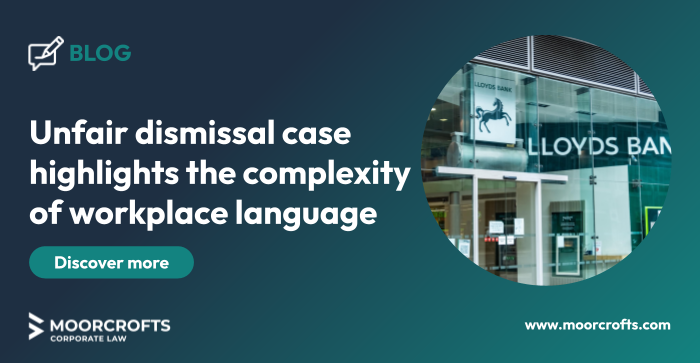Unfair dismissal case highlights the complexity of workplace language
A recent case involving a former Lloyds Banking Group employee has sparked debates and discussions around the boundaries of workplace language and its consequences. Carl Borg-Neal, a former manager at the bank, won his case for unfair dismissal after being dismissed for using a racial slur during a race education training session. This case brings to the forefront the importance of addressing sensitive topics in a diverse workplace while maintaining a balance between training and discipline.
Borg-Neal was one of over 70,000 employees invited to participate in Lloyds Banking Group’s Race Action Plan, which included race education training sessions. During one such session in 2021, a discussion about intent versus effect led him to ask a question about handling a situation where he had heard someone from an ethnic minority use a potentially offensive word. In his example, he used the full word instead of an abbreviation, specifically mentioning the use of the N-word in rap music. Borg-Neal apologised immediately for his choice of words.
Following the training session, the trainer took four or five days off work as a result of the distress caused by Borg-Neal’s use of the racial slur. In response, Lloyds Banking Group decided to dismiss Borg-Neal from his position. The bank’s stance was that the word used was “appalling” and should be avoided in a professional environment.
In the subsequent legal proceedings, the Employment Judge acknowledged that the word used by Borg-Neal was indeed offensive and distressing, especially for a black employee. However, the judge also ruled that in the unique circumstances of this case, no reasonable employer would have dismissed the claimant. Instead, the bank could have chosen to issue a warning, given the context of the training session, which aimed to explore the intention versus effect of language.
The Tribunal rejected Borg-Neal’s claim for race discrimination, finding that the primary reason for his dismissal was his use of the racial slur, rather than his ethnicity. However, the tribunal did uphold one of Borg-Neal’s claims for disability discrimination, considering his dyslexia as a factor in his choice of words during the session.
Lloyds Banking Group Banking Group emphasised its “zero-tolerance policy on any racial discrimination or use of racist language” in response to the case. As you would expect, most big organisations, such as Lloyds, are committed to inclusive and respectful workplace environments.
The Carl Borg-Neal case underscores the complexity of addressing sensitive topics related to race and language in the workplace. While maintaining a commitment to eliminating racial discrimination and offensive language is crucial, it is equally important for employers to consider the context and intent behind an employee’s actions.
Please contact Moorcrofts for advice on workplace language and discrimination or other employment law issues.



